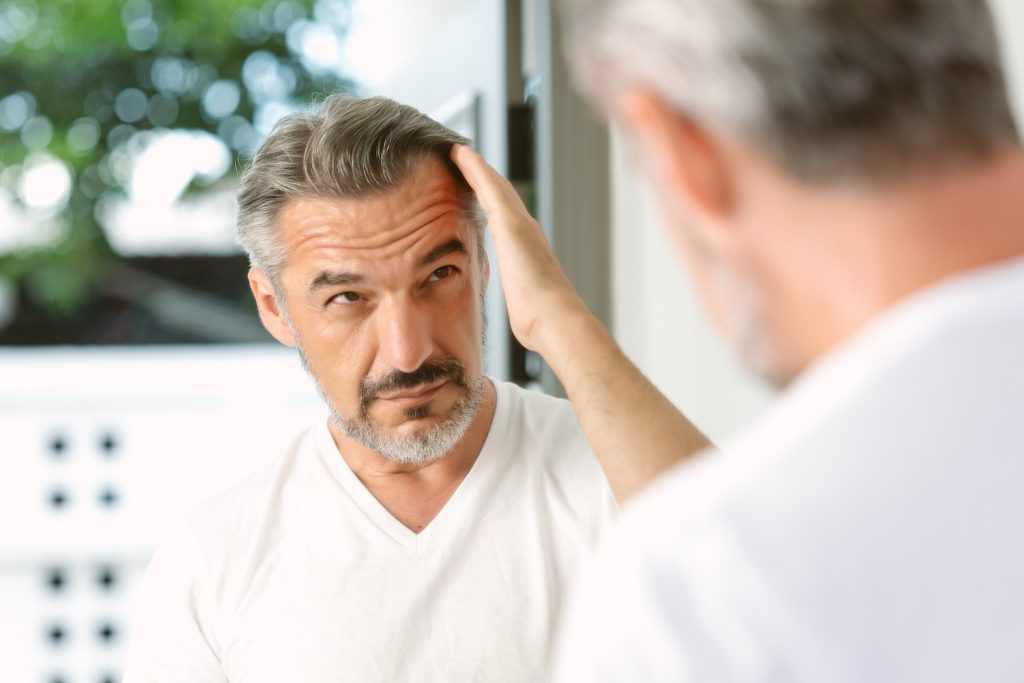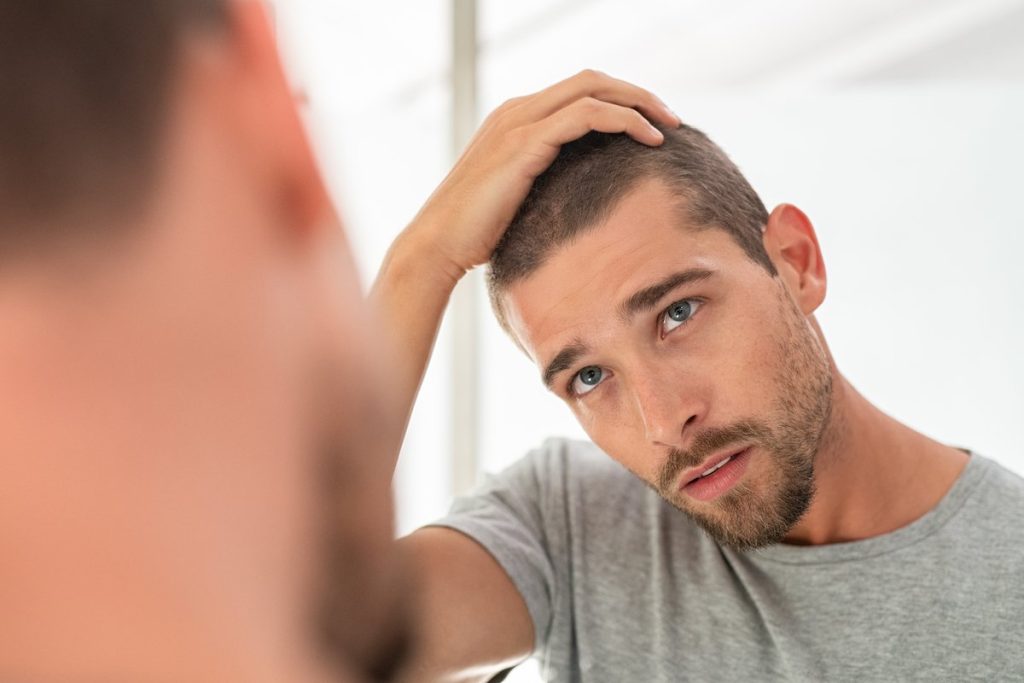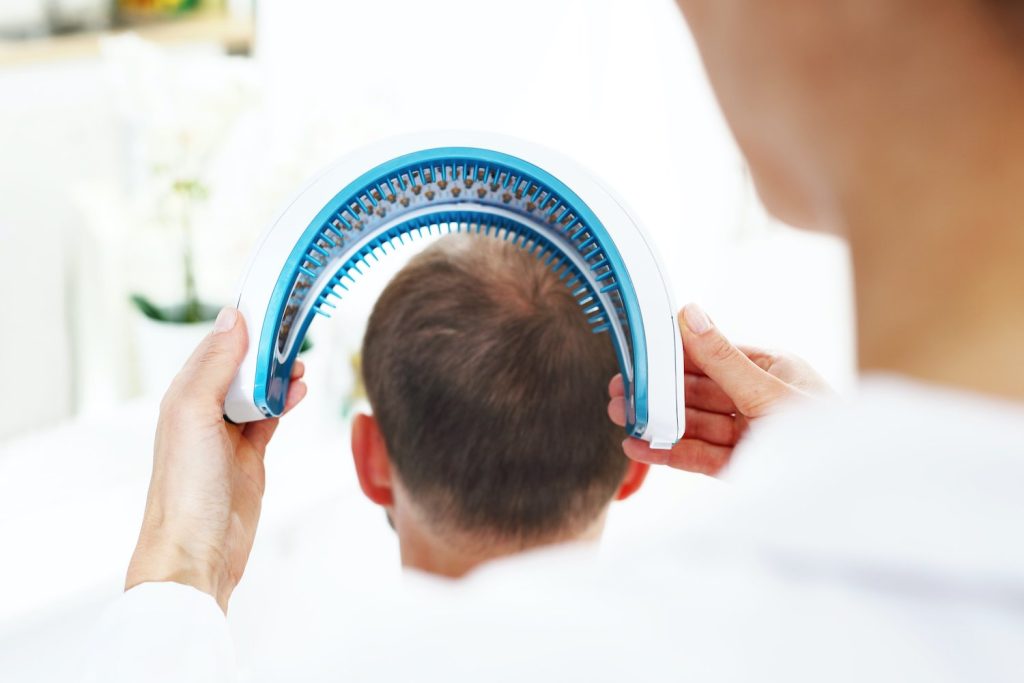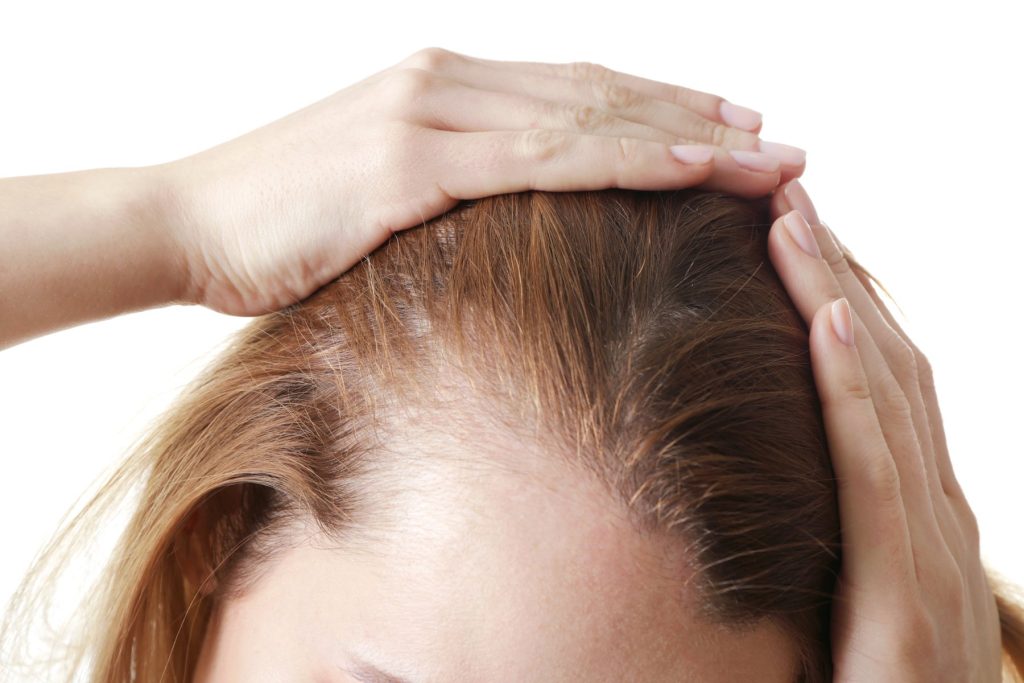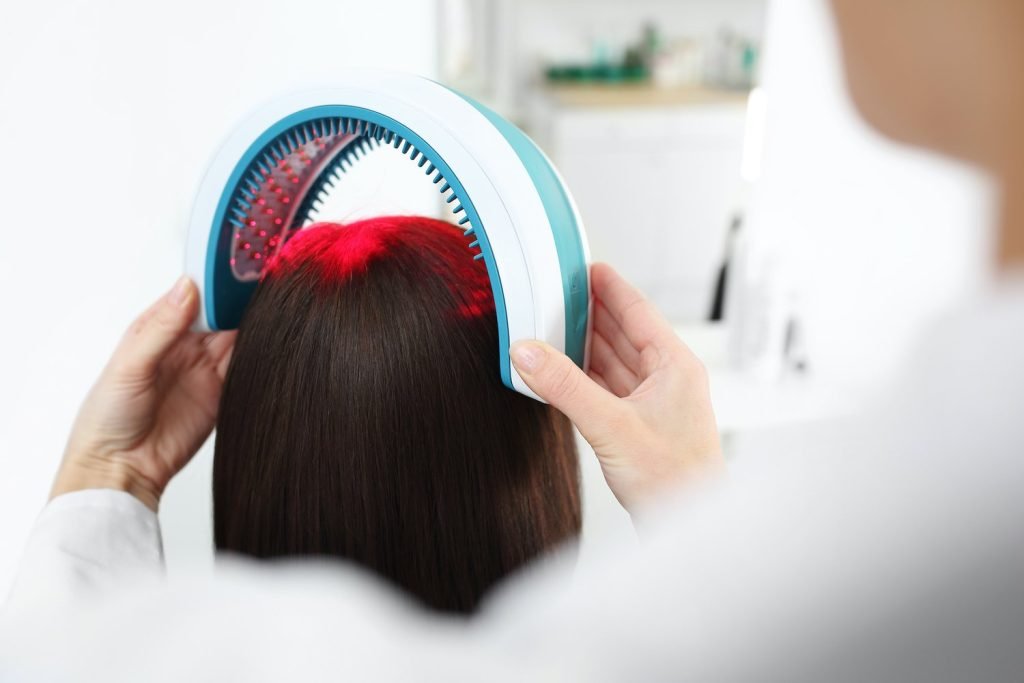- Hairline Clinic - Hair Loss Treatment in Akron and Cleveland Ohio - Schedule FREE Consultation
- 330.633.5225
- CONTACT US
Risk Factors of Hair Loss for Men and Women
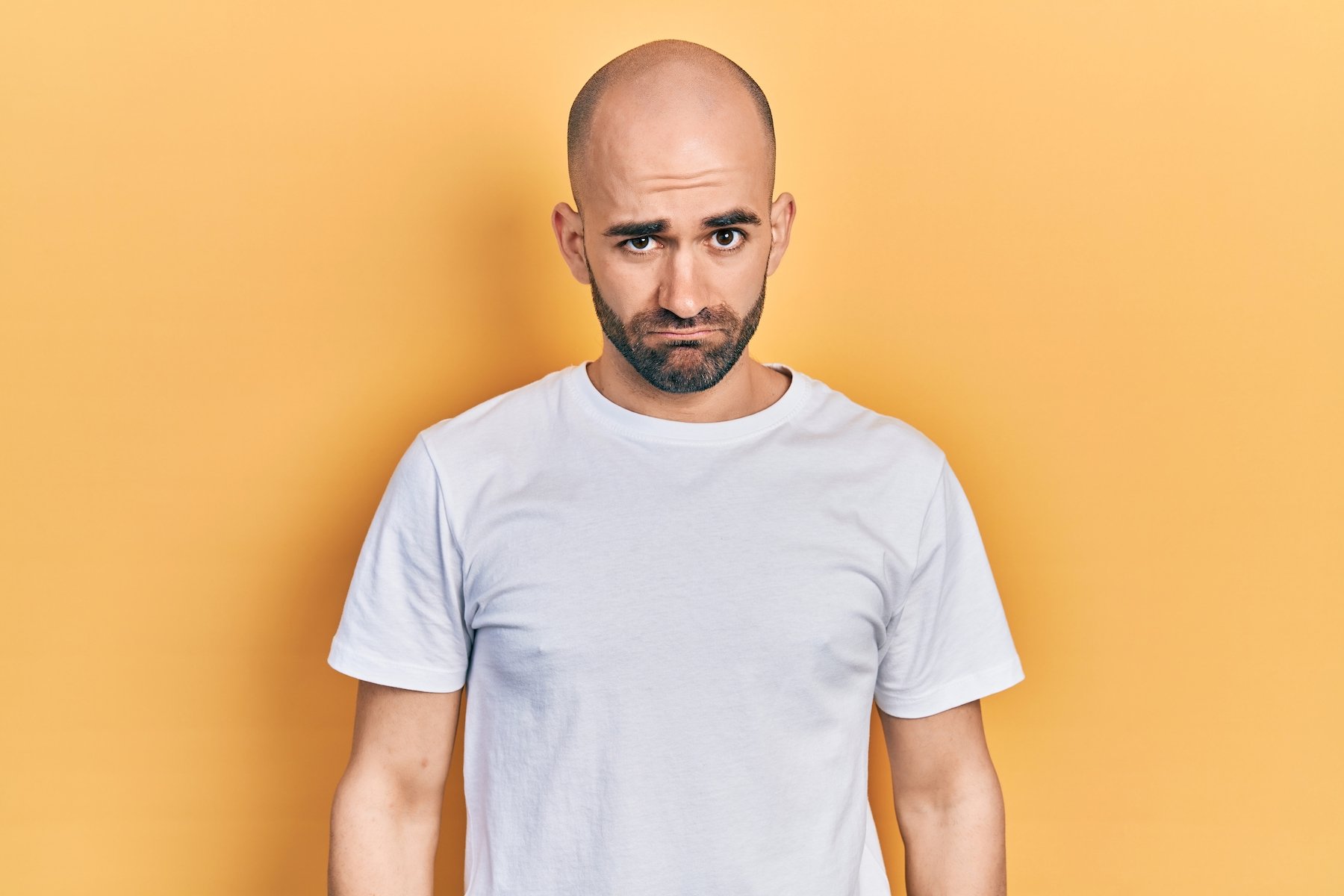
Some hair loss factors cannot be controlled, yet others can. At best the body treats hair as a “accessory organ”– even if psychologically it is vitally important.
It’s easy to think that hair loss is a rare occurrence, given the presence of thick, lush locks one sees in television advertising and entertainment programming. But the facts are that by age 35, approximately two-thirds of men will have some degree of hair loss. And by age 40, about 40 percent of women have some hair thinning (or serious loss) as well.
These numbers reflect the ever-growing hair loss treatment industry that provides hair loss solutions for women, hair loss solutions for men, laser hair loss therapy, hair transplant surgery and much more. People are concerned about their appearance. Hair is important.
Those people on television might be in the lucky portion of the population that keep their hair well into midlife or later. Or more likely, they know their employment is dependent on being youthful looking, so they either address the loss as it starts (e.g., with medication) or wear hair replacement systems of some kind.
But another approach is to understand why the hair is lost in the first place. That means assessing your risk factors, which are quite varied:
Genetics/family history – While it’s clear that baldness runs in families, what’s not clear are the specific genes and which parent they come from. The genes can come from either or both parents, mother and father, and there likely are multiple genes involved. A father can have a full head of hair and his children not when they reach his age, and vice versa.
Age – As stated above, by midlife men and women will naturally have thinner hair or be completely bald. This is referred to as “senescent alopecia.” It’s easy to consider it a natural part of the aging process, which it is. But more specifically, it’s about hormonal changes (increase in dihydrotestosterone), a slowing of hair growth cycles, decreased blood flow to the scalp (poor circulation impairs other areas too, in part due to less active lifestyles), and oxidative stress (the action of a variety of stressors, including pollution, emotional stress, excessive consumption of sugar and unhealthy fats).
Significant weight loss – Victims of starvation lose their hair simply because the body redirects scarce nutrients to vital organs (heart, kidneys, liver, brain, etc.). In newsreel footage of the liberation of World War 2 concentration camps, the very thin survivors have clear hair loss despite being relatively young. Individuals who engage in crash diets or who have eating disorders – severely limiting their caloric intake with the singular goal of being as thin as possible – very often experience hair loss. Fortunately, most of this is reversible.
Poor nutrition – Deficiencies of iron, vitamins D and E, biotin, or protein can lead to hair loss, even if the person is of normal weight. Hair itself is made of keratin, which requires protein intake to be in adequate quantities.
Certain medical conditions – The most common medical conditions associated with hair loss are lupus and thyroid disease, which lead to alopecia areata.
Stress – When people say they are so stressed they are “tearing their hair out,” that is typically meant as a figurative term. In fact, a psychological condition known as trichotillomania exists where the individual (often children or teenagers) literally do pull out their hair. But excessive stress in adults more often generates hormones, including cortisol, which interfere with the normal growth cycles. In most cases, when the stress subsides hair will grow back. However, in more extreme cases of chronic stress, the inflammation might permanently damage the hair follicles.
Some of these factors – age, for example – are obviously unalterable. But better stress management, an improved (and sensible) diet, as well as exercise to maintain good circulation (and reduce stress), are within the individual’s control.
We provide hair loss solutions for men and women experiencing hair loss at our hair loss treatment clinics in Cleveland and Akron Ohio.
If you are a man or woman at high risk for hair loss, we provide industry-leading, individualized hair loss treatments and hair loss solutions in Cleveland and Akron, OH. Schedule a FREE confidential consultation and evaluation at our Akron Hair Loss Treatment Clinic or our Cleveland Hair Loss Treatment Clinic by calling 330.633.5225 today!
Hair Loss Treatments
Men's Hair Loss Solutions
Women's Hair Loss Solutions
Men's Hair Loss Solutions
Ready for change? Call our hair loss experts at (330) 633-5225 to schedule a FREE appointment.
HairLine Clinic is an industry leader providing individualized hair loss treatments to men and women experiencing hair loss in Akron and Cleveland, Ohio.


